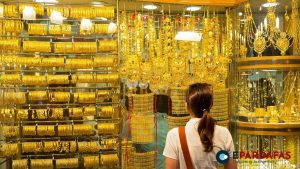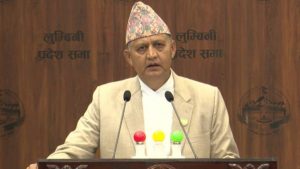At present, the customs department is tightening customs clearance procedures, while the revenue investigation department has opened a file on the importing company.
This information is confirmed by a letter from the Customs Department addressed to Rasuwa Customs, Tatopani Customs, and the Customs Check Pass Office on May 15. Vehicles other than those from China are not being imported through Rasuwa and Tatopani customs. According to the letter sent to these offices, the government has concluded that Chinese car importers have been evading taxes. Therefore, the department issued instructions to tighten inspections at customs offices where Chinese importers bring vehicles.
Similarly, the Revenue Investigation Department conducted a raid on Cymex Inc., the importer of the Chinese electric vehicle brand BYD, and seized documents. The department has confirmed receiving additional necessary documents from the company.
“BYD is being investigated as a representative of the documents,” said a department source. “If any faults are found with BYD, other companies will also be investigated.”
However, a source close to the Revenue Investigation Department mentioned that tax evasion wouldn’t be proven in the investigation. “If proven, action will be taken with a fine. Otherwise, we will give a clean chit,” the source said.
What is the government’s suspicion?
Specifically, the government suspects that Chinese electric vehicle importers have imported vehicles by reducing the motor peak power and capacity in collusion with the main manufacturing company. Importers are passing customs inspections by declaring that vehicles, which have a 150 kW motor power capacity in China, are 100 kW or less when brought to Nepal. According to employees involved in the investigation, if it is confirmed that the motor peak power and capacity have been reduced and passed customs inspection, it will prove that 15 billion to 20 billion rupees in taxes have been evaded.
The documents submitted by the manufacturing company when passing customs inspections for vehicles manufactured with 150 kW motor peak power state 100 kW peak power. A 20% customs duty and 20% excise duty should be paid to the government when the motor peak power is 150 kW.
To pass customs inspections, fake documents of the same model vehicle are created, stating 100 kW motor peak power, enabling importers to pay only 15% customs duty and 10% excise duty. According to the provisions of the Economic Act 2080, there is a 15% difference in customs duty between vehicles with a capacity of 150 kW and those with a capacity of 100 kW.














Comments